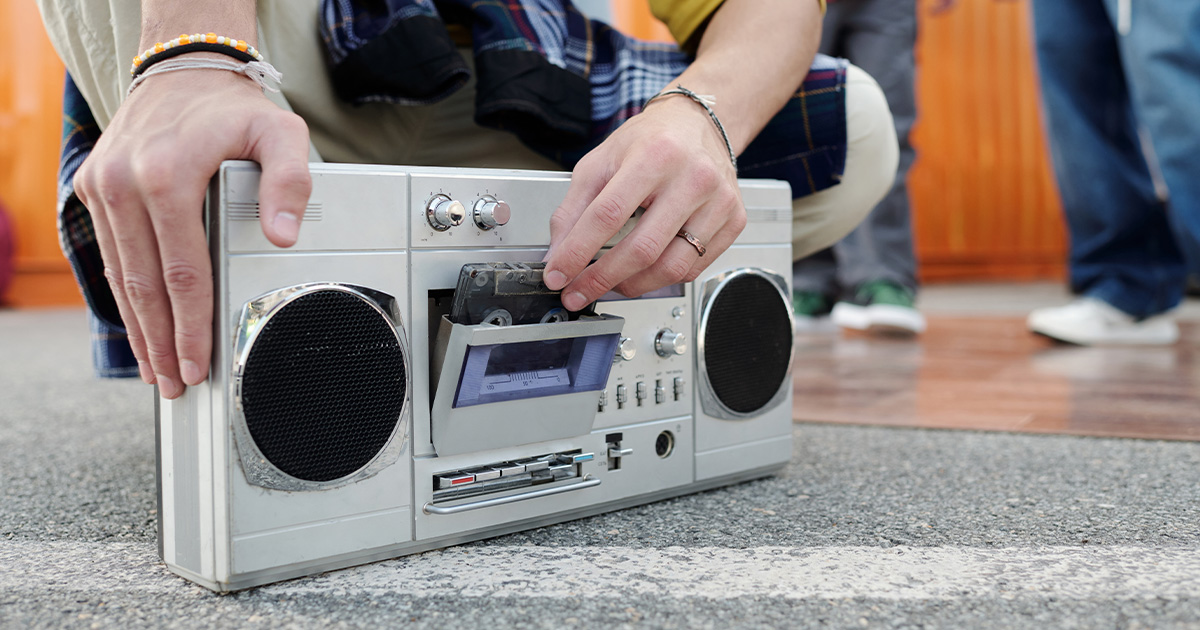What Are Your Generation's Worst Money Habits?
Every generation has spending habits. Some of us aren't saving enough for retirement, while others are maxing out credit cards and accumulating enormous amounts of debt. Some even bought homes they couldn't afford. Let's explore the worst money habits of each generation and give you some idea of how to break them.

Where Do Your Money Habits Come From?
We all start somewhere with finances. Perhaps it's our first allowance as a young child for doing chores, or maybe we don't learn about the value of money until we're in our teens with our first part-time job. Developing good money habits earlier in life can lead to great things down the road, but less than 50% of respondents to a National Debt Relief survey said that their parents inspired their money habits. Where did you develop your money habits?
 Photo By: Kaboompics.com, Pexels
Photo By: Kaboompics.com, Pexels
Baby Boomers Are Traditionalists
In many senses of the word, baby boomers are the traditionalists among us. Particularly when it comes to personal finance, they've developed a few bad habits over the decades. Let's examine how their traditionalist approach to personal finance may not always be beneficial.
Bad Habit #1: Save, Save, Save
While having a "save first" mindset isn't always a bad thing, there is such a thing as over-saving. If saving money means you miss out on opportunities to live well and have a little fun, saving isn't always a good thing. Here's how to break that habit.
How To Break The Savings Habit
If you find yourself saving every penny that you can, with no clear goal in mind for the money, maybe it's time to think about what you'd like to spend that money on. Saving for the sake of saving is not doing your financial future much good. Sure, having money in the bank is great, but to what end? Try setting yourself a purchase goal—to give you a savings target—and then buy the item you've saved for.
Bad Habit # 2: Paying With Cash
Paying with cash might not seem like a bad idea: "cash is king", as they say. Paying with cash is something that boomers favor as they don't have to deal with the hassle of using new financial technologies—which is totally fair, but physical cash isn't the be-all/end-all of transactions.
How To Break The Habit Of Paying For Everything With Cash
Cash is undeniably still king. But there are some things you should never buy with cash, even though it can be difficult to stop, if that's all you know. The key to breaking the habit of paying for everything with cash is to start becoming more aware of financial technologies and how they work in a structured and safe environment. Enlist the help of your grandchildren or children to help you learn. Paying for things with debit or credit isn't the monster it's made out to be!
Bad Habit #3: Not Using Unconventional Retirement Accounts
Most baby boomers are very familiar with the 401(K), but less familiar with unconventional retirement accounts, such as a Roth IRA. Putting their money into a traditional IRA actually increases their tax liability as they get older. This can have huge tax implications as one gets older, because traditional IRA withdrawals are taxed as income. Kampus Production, Pexels
Kampus Production, Pexels
How To Break This Habit: Information Is Key, Learn About Roth IRAs
Roth IRAs are a different type of retirement account than a traditional IRA. They're tax-free retirement accounts that won't cost you a penny in taxes. Neither growth within the Roth IRA nor withdrawals from the Roth IRA can be taxed, provided you've had the account for more than 5.5 years and are over the age of 60. The Roth IRA does have an annual contribution limit based on your age, so ensure you're not over-contributing to this account each year.
Bad Habit #4: Helping Their Adult Children Through Financial Hardships
While we all fall on financial hard times and could use a leg up sometimes, many boomers can over-help their children through tough financial situations. We're not talking about the "I'm gonna lose my house" kind of crisis, we're talking about low-impact "crises" that they would do better to sort out themselves than take the financial help.
How To Break This Habit: Sometimes, The Hard Lessons Are Worth Learning
It can be difficult to say no when your children come to you for help. But sometimes, the short-term pain of digging themselves out of a financial hole will be more rewarding than any short-term solution that borrowing from you could offer them. If you do decide to help them out, ensure that you're providing them with a loan and not a hand-out. Work out a payment plan to get your money back—even if you don't really need the money, it's a good lesson to teach, no matter how old your children are.
Bad Habit #5: Not Making Use Of High-Yield Savings Accounts
Most boomers have one checking account and one savings account—maybe an investment account and a retirement account and that's it. While we don't suggest opening a dozen bank accounts, any emergency fund or general savings should be in a high-yield savings account, rather than a traditional savings account.
How To Break This Habit: Open A High-Yield Savings Account
Unlike traditional savings accounts that generally return around 1% per year, most high-yield savings accounts can return as much as 4% per year. While still not as good as the average stock market investment return of around 8%, it's not too shabby. Opening up a high-yield savings account will ensure that your emergency fund (or whatever funds you keep in there) will grow significantly over time, growing as much as 20% within five years!
The Bad Money Habits of Generation X
If you were born between 1965 and 1980, you're a Gen Xer. Your financial habits likely came from your Boomer parents, but maybe your financial muscles flex a little more than they did. You were likely the first generation, for example, to be attune to online or digital banking.
Bad Habit #1: Neglecting Their Retirement Savings
Generation X might as well be called the "compassionate generation". They tend to focus their funds on looking after aging parents or paying for their kids' college, while neglecting their own retirement savings. We're not saying don't look after your aging parents, or help your kids pay for college—just don't do it at the expense of your own retirement.
How To Break This Habit: Find Balance In Your Budget
Budgeting is something that Generation Xers do pretty well, but finding a balance in your budget between saving for your kids' 529 plan and saving for your own retirement is crucial. If your job offers employer-matched 401(k) plans, take advantage of that. If not, try to put away an equal amount every month between your retirement account and your kids' college fund.
 Photo By: Kaboompics.com, Pexels
Photo By: Kaboompics.com, Pexels
Bad Habit #2: Not Building Up An Emergency Fund
Despite the "save, save, save," mentality of their parents, Gen Xers sometimes struggle to build up an emergency fund. Unfortunately, they'll have entered the workforce during a time of economic stagnation and faced job security issues as they've aged. It's not exactly Gen X's fault that they haven't built up that financial cushion, but there's no time like the present to start.
How To Break This Habit: Start Building Up An Emergency Fund
An emergency fund is one of the building blocks of financial security. It gives you a cushion, should the alternator go out on your car, or you suddenly encounter an unexpected health emergency. Start with saving $1,000. This can usually be done in a couple of months—sell things, take extra shifts, but build up that starter emergency fund. Then, expand that to between three and six months of living expenses. Leave room in your monthly budget for emergency savings and put them into a high-yield savings account.
Bad Habit #3: Letting Debt Accumulate
Generation X has the highest average debt load than other generations. While this is largely because they took on debt during times of economic stagnation, many Gen Xers also let that debt accumulate. The rising cost of everything over the course of their lifetime left them with few options but to take on large amounts of debt. Debt payments can seriously hinder your retirement plans.
How To Break This Habit: Pay Down That Debt ASAP!
If you're a Gen Xer with a large amount of debt, you should use the time you have before you retire to pay that debt down. With the exception of your home, you should start crafting a new budget that specifically addresses your debts one by one, starting with the highest-interest debt first. Once that's paid off, move onto the next one (using the extra funds to pay it off). And so on and so forth until you are debt-free.
Bad Habit #4: Not Budgeting Effectively
Alongside the lack of an emergency fund and the accumulation of high-interest debt, Gen X doesn't do a great job of effectively budgeting. Economic stagnation, a desire to look after their aging parents, and/or help their kids through college has left them with very little money to work with every month, which has driven them into debt. Budgeting effectively could provide a new, sorely-needed financial picture.
 Photo By: Kaboompics.com, Pexels
Photo By: Kaboompics.com, Pexels
How To Break This Habit: Begin A Zero-Based Budget
The concept of zero-based budgeting is simple: give every dollar you make a purpose. This way, when you come to the end of the month, your bank balance should either be $0, or whatever the minimum balance requirement is for your bank. By creating a zero-based budget, you're forcing yourself to think about how you spend money and rethink financial decisions.
 Photo By: Kaboompics.com, Pexels
Photo By: Kaboompics.com, Pexels
Bad Habit #5: Not Investing For The Long-Term Or Failing To Re-Evaluate Investments
Nearly half of all Gen Xers don't own a single share of stock. Some haven't re-evaluated their investment strategies in decades, others don't pay attention. It may be another case of rising debt and economic downturn, but either failing to invest altogether, or not re-evaluating investment portfolios for years, can lead to thousands of dollars in lost revenue.
How To Break This Habit: Begin Investing Today
There's an old saying that "time in the market beats timing the market". This means that the more time your money spends in the market, the more likely it is to provide greater returns than if you waited for a market upswing. If you haven't invested any money at all in stocks, it might be a good idea to start—stock market returns are typically between 8% and 10% annually. That's double the rate of return for a high-yield savings account.
The Bad Money Habits Of Millennials
Millennials were born between 1981 and 1996. These are the people who felt the effects of wealth disparity the most. In 2024, the average net worth of a millennial was around $333,000. For Gen Xers, their net worth was an astonishing $1.13 million. That wealth disparity hasn't done millennials any favors with their financial habits. Here are some of the worst habits they've picked up on throughout the last 44 years.
Bad Money Habit #1: Student Loan Debt Accruement
While it's not their fault, millennials have an extraordinary amount of student loan debt. The average millennial student loan borrower still owed about $40,000 as of 2024. Student loan debt is a crisis across the United States, but millennials are feeling the bite of high interest loans that can't be wiped out by bankruptcy.
How To Break This Habit: Budgeting
Short of a huge financial overhaul in how college and universities are paid for in the United States, millennials are going to need to be diligent about factoring student loan payments into their monthly budgets. Make a zero-based budget and allocate the minimum payment possible towards your student loans. Use the debt snowball method to pay them off faster, as your debt load decreases.
 Photo By: Kaboompics.com, Pexels
Photo By: Kaboompics.com, Pexels
Bad Money Habit #2: Spending Money For Convenience
Uber Eats, DoorDash, Goodfood, etc. All about convenience. Unfortunately, millennials, more than any previous generation, seem more than willing to pay for the convenience of having food delivered, smart home appliances (rather than turning the light switch yourself), and much more. This can lead to hundreds of dollars in fees every month that you pay for without a second thought.
How To Break This Habit: Save The Money, Do It Yourself
Returning to the days of DIY might be the resolution here. Sure, you could pay someone to deliver your pizza for you. Or, you could take a 10 minute walk and pick it up yourself. You could pay $50 for a smart light switch, or you could pay $5 for a regular light switch and just... turn it on and off yourself. Convenience costs. Save the money for something that'll really make you happy.
Bad Money Habit #3: Overspending
Data from Deloitte suggests that millennials spend an average of $85 per day, accounting for almost 30% of consumer spending in the United States annually. $85 per day is a pretty staggering figure. If you haven't made a budget yet, it might be a good idea to start doing one.
How To Break This Habit: Track Your Finances More Closely
When was the last time you checked your bank account? Yesterday? Last week? Take the time to track your spending and see if you're anywhere close to $85/day. If so, cut back on spending so much on eating out or the morning coffee and invest or save it instead. Start by making coffee at home in the morning and make your own lunch.
Bad Money Habit #4: Shopping Online For Everything
Online shopping has enabled millennials (who are far more tech-savvy than their predecessors) to buy almost anything they could possibly want online. Shopping online for everything has become an easy way for millennials to part with their money and definitely hasn't helped millennials' financial outlook.
How To Break This Habit: Try No Online Shopping For A Month
Delete the Amazon or Temu apps from your phone. Heck, delete your Google Wallet or Apple Pay data entirely. Try this for a month. You'll be amazed at how little you impulse-buy when you have to manually put in your credit or debit card information, or how little you part with your money when shopping at the grocery store versus just ordering your groceries online.
Bad Money Habit #5: Conscience Over Cost
Okay, so this isn't necessarily a "bad" money habit, but it does provide some food for thought about how much money you spend every month. Many millennials will opt for the far more expensive options that are cruelty-free, vegan, or built sustainably. That's great and everything, but the cost is often more than double. A commitment to a social cause is admirable, but it is costing millennials more money.
How To Break This Habit: You Don't Necessarily Need To
We aren't saying that prioritizing ethics over cost is a bad thing. And you certainly shouldn't abandon dearly-held principles to save money. But, if you're finding that your financial picture looks tight at the end of each month, and you've spent money on environmentally/socially-conscious products that could account for that extra money, consider holding back a portion of those expenses every month. Maybe instead, you could donate to a charity once a year.
The Bad Money Habits Of Gen Z
Finally, we come to Gen Z. Those born in the era of the Internet, between 1997 and 2012. As you might expect, Gen Zers' financial habits center around the rapid increase of the digitization of money. Let's explore some of the worst habits that Gen Z learned (and didn't) from their predecessors.
Bad Money Habit #1: Not Having A Plan
Unfortunately for Gen Z, their worst financial habit is not having a financial plan. While this is hard to blame on them—we don't teach much about money in school anymore—it's still critical that Generation Z is able to plan their finances.
How To Break This Habit: Become Financially Literate As Soon As You Can
Different people have different views of when you should teach your children about money. If you're the parent of a Gen Zer, you're likely wondering this yourself as your kid reaches their teenage years. You should start preparing your Gen Z kid to take on the role of managing their own money as soon as possible in life. The sooner they understand the value of money, the sooner the basic principles of good money management can be taught.
Bad Money Habit #2: Relying On Social Media For Financial Advice
Because most Gen Zers (of a certain age) are almost always connected to the Internet and social media, it's much easier for them to be given bad financial advice from apps like TikTok. They've come to rely on social media for financial advice and that's not a good habit to get into.
How To Break This Habit: Speak To A Financial Advisor
If you're a parent of a Gen Zer, it's a good idea to introduce them to your own financial advisor in their early teens, when they're less susceptible to getting advice on money from TikTok. A licensed professional will be able to set them up early with things like bank accounts. You can even begin contributing to their education fund, or have them contribute a portion of their weekly allowance at home to a high-yield savings account.
Bad Money Habit #3: "I'm Too Young To Save For Retirement"
Saving for your retirement is one of those things that it's never too early to do. The sooner you start saving, the more you'll have when you retire and the less you'll have to make up for in your later years. You're not "too young" to save for retirement, that time can't be gotten back and neither can those lost dollars.
How To Break This Habit: Start Saving For Retirement Early
Even if you've just gotten your first job, your company may offer an employer-matched retirement savings plan. Get on this as soon as possible and start contributing a little every month to it. It's free money from your employer, take advantage of it. Open up a Roth IRA and contribute to it, then watch your gains and contributions grow tax-free.
Did You Adopt Your Generation's Worst Money Habits?
Tell us in the comments below if you adopted your generation's worst money habits. Which of these habits do you still hold and have you managed to kick any of them? Let us know in the comments.
You May Also Like:
11 Cities Where Startups Thrive & 11 Where Dreams Go To Die
How Do I Protect My Child's Inheritance From A Greedy Spouse?











































